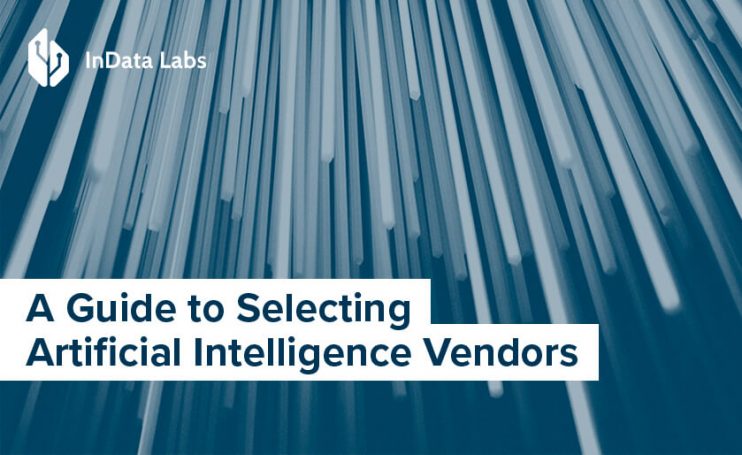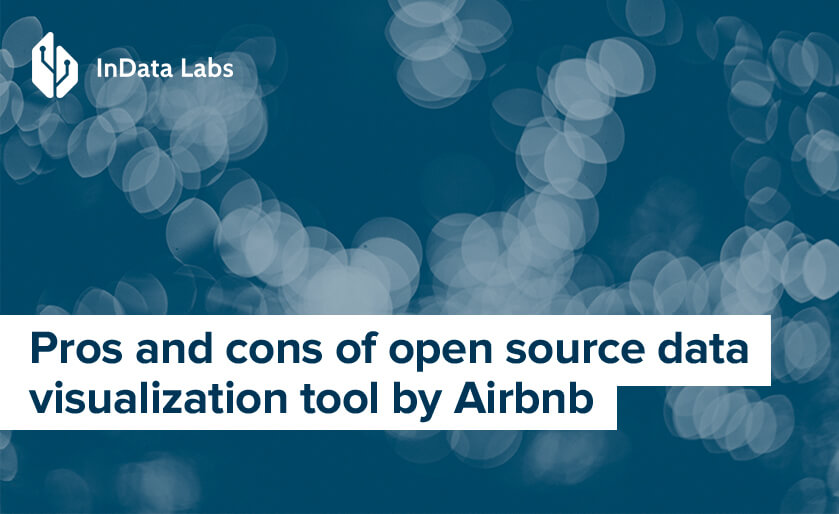Data Science is not an entirely new field, but has seen a massive rise in importance within enterprise organizations and startups alike. Gartner has reported many companies “AI Washing” their product and services offerings to get in on the massive digital gold rush we are seeing across the business landscape where data science is now a “must-have” core competency. Today, there are thousands of machine learning vendors offering varying levels of data science-related services and AI solutions, making it extremely challenging and difficult task to navigate. Making the correct choice of a vendor can be a make-or-break decision for your company so here are some points to consider when developing a solid strategy for vendor selection in the data science and machine learning technology space.
Begin with the End in Mind
Before starting the vendor selection process be sure to have a clear goal what is to be accomplished. The business challenges that are being addressed should be large enough that they create a significant opportunity to create business performance improvements. Implementing solutions to these challenges based on data science technologies should bring massive and measurable benefit to your organization. Think big, yet be specific in the details as you begin artificial intelligence vendor selection.
Select the Most Appropriate Engagement Model for your Organization
For many situations hiring data science experts as full-time employees of your company is the right move, but it’s a challenging and often frustrating undertaking, especially since the limited pool of data scientists is in high demand.
Sometimes hiring your own data science team is unreasonable, for example when you don’t consider data science as a core competency of your business or when you need the fastest way to build up data science capabilities. For these situations, there are a wide range of external resources that your organization could utilize to benefit from the massive power of today’s advances in data science. Here are some options from the machine learning selection guide:
- Staff Augmentation
This model is often employed to bridge a gap in talent or expertise without hiring someone into a full-time position. This can be an effective way to cross-pollinate data science skills with your permanent staff while completing certain time-sensitive tasks or projects. This approach can also be utilized while you consider more complex and comprehensive engagement levels as described in some of these additional engagement models.
- Project-based Model
Typically with a definitive beginning and end to a specific project, this model can be particularly effective when a highly specific scope of work is created and projects are a part of a longer-term strategic mission. For example, your first project with an artificial intelligence vendor may be to do an in-depth analysis of the existing infrastructure and tools and to evaluate the current state of analytics capabilities within the organization. This can lead to the development of a prioritized plan of attack for long-term success and future projects. The next steps might involve moving on to more complex problems or expanding into more involved vendor-client relationships with a skilled machine learning company.
- Hybrid Center of Excellence (CoE)
Your Center of Excellence must serve as a bridge between the people who drill the data and those who understand the business applications. This model is the best way to establish an ongoing process for data-science collaboration, education, and cross-disciplinary information sharing within your organization. It helps to overcome the biggest obstacle to advanced analytics adoption – lack of understanding of how to use data science to improve the business.
A robust Center of Excellence driven by your staff and supported by the expertise of your AI data science vendor partners is the end game you should be seeking to accomplish. We recommend using this model if you are planning to build in-house data science team in the future.
- Outcome-based or Gain-sharing Model
Outcome-based models are generally the most complex of these models. They require transparency, a deep understanding of requirements by the vendor and appropriately chosen metrics to measure successful outcomes.
The gain-sharing models are growing in popularity with both vendors and clients, and the reasons for this are simple. Vendors feel more engaged and responsible for creating desirable business outcomes, they also tend to show more of a ‘risk-taker’ attitude. Clients on their part, receive higher-quality results from data science consulting that focus specifically on what they are looking to achieve.
Primary Considerations During Data Science Vendor Selection:
- Vendor Portfolio
The machine learning companies you are considering during the data science vendor selection process should be able to provide you with success stories or client references within your industry or the technologies that will be applied to your use case.
- Proof of Concept
Ask the potential data science vendor to demonstrate in some detail how they would approach working with you and solving your problem. Be sure to work with realistic data volumes and ask specific questions that are unique to your business case that will be mission critical in your mind.
- Scalability / Adaptability
During this phase of machine learning data science vendor selection, it is especially important to find out how they would deal with problems such as missing data, poor data quality, as well as inevitable future changes/ upgrades in data systems. If you are anticipating massive growth in your data volume be sure to address this capability as well.
- Scope of Work
The details of how they will solve your problem should be clearly defined in writing during this part of the vendor selection process. Timelines, milestones and specific costs should all be spelled out in as much detail as possible. This will lay a foundation for there to be no misunderstandings or budgetary surprises after a project has been started.
- Cross-check KPIs
Have your data science vendor articulate how their solution will solve your problem and improve your business results. A vendor that cannot do this probably does not have a firm grasp on your KPI’s and what metrics you will use to evaluate success. This is an opportunity to see how well data analytics vendors understand your business and the challenges it seeks to overcome.
- Include all Stakeholders
In most cases, C-level executives are heavily involved in making the final data science vendor selection. But be sure to include front-line business managers and other team members whose performance and success will be impacted by this decision. With the feedback from your team, you will choose the right vendor to develop a synergistic partnership with.
Additional Questions to Ask
Here are a few additional question that might be helpful when selecting the right data science vendor for your organization:
- Does the company provide knowledge sharing? This is important if you want to develop your own in-house expertise in the future.
- Does the company have the competencies that are often applied in data science projects such as data engineers, UI/UX specialists, or developers that are needed to create a new product or feature with data science as a core, rather than building machine learning models only?
- Does the company have any pre-built technologies? This might speed up the refinement of projects when speed is important.
Choosing the right data science vendor and method of engagement for your organization is a mission-critical decision. Learn more about how InData Labs provides data science consulting to startups and large enterprises to help them navigate the myriad of complex decisions involved in a new data initiative.
Get Help from Experienced AI Vendors
Need help with your project? Schedule a call with a team of AI specialists to find the right solution for you.



